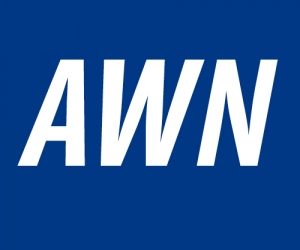Restore, Reinvest, Renew to award $31.5M in grant funds to West Side entities
Please fill out all Required fields
“).popup({ “positionTo” : “origin”, “transition” : “flip”, “history” : false, “overlayTheme” : “b”, “theme” : “none”, “dismissible” : false }).popup(“open”); }); });
 |
Before recreational cannabis was legalized in Illinois at the start of the year, state lawmakers told residents in predominantly black and brown communities that 25 percent of cannabis tax revenue would go to fund programs designed to address some of the many issues within those communities, particularly those intertwined with the government’s War on Drugs policies that have led to high levels of incarceration in the African American and Latinx communities.
Now, some of that money is ready to be distributed to eligible entities in a qualifying areas across the state that have been affected by substance abuse and policies that have criminalized the practice.
In a statement, Senate Majority Leader Kimberly Lightford (7th), along with the Illinois Criminal Justice Information Authority — a state agency “dedicated to improving the administration of criminal justice,” according to its website — announced that $31.5 million in cannabis tax revenue is now available.
The funding is part of the state’s Restore, Reinvest, and Renew (R3) program, which funds “strategies that focus on violence prevention, re-entry and health services to areas across the state that [are] objectively found to be acutely suffering from the horrors of violence, bolstered by concentrated disinvestment,” according to the nonprofit Illinois Justice Project.
Lightford explained that $3.1 million of that $31.5 million amount will go toward helping eligible entities with assessment and planning. According to R3’s website, the grants will fund programs in five areas: civil legal aid, economic development, reentry, violence prevention and youth development.
Illinois Lt. Gov. Juliana Stratton’s Justice, Equity and Opportunity Initiative (JEO) and the Illinois Criminal Justice Information Authority (ICJIA) identified communities across the state that are eligible for the funding. Stratton chairs the board that operates the R3 program.
According to an R3 eligibility map on its website, most of the West Side, including all of Austin, is within a qualifying area, where planning grants will range from $25,000 to $240,668.
Eligible entities include “nonprofit organizations, local units of government, tax-exempt faith-based organizations, businesses, and other community organizations,” that are located in a qualifying area and/or serve residents in those areas, Lightford explained in her statement.
The deadline for all applications is Monday, July 20, 2020.
“The work being done through the R3 Program is the most significant part of legalizing cannabis in Illinois,” said Lightford, who is a member of the R3 board. “Putting funding into poor and disadvantaged communities will finally start to reverse the dire effects of the war on drugs.”
The grant application, in addition to instructions on how to apply, are available at: r3.illinois.gov/. If organizations need technical assistance with applying for the grants, they can visit: icjia.illinois.gov/gata/technical-assistance.
Contact:
Email: michael@austinweeklynews.com Twitter: AustinWeeklyChi
Become our partner in independent community journalism
Thanks for turning to Austin Weekly News and AustinWeeklyNews.com. We love our thousands of digital-only readers. Now though we’re asking you to partner up in paying for our reporters and photographers who report this news. It had to happen, right?
On the plus side, we’re giving you a simple way, and a better reason, to join in. We’re now a non-profit — Growing Community Media — so your donation is tax deductible. And signing up for a monthly donation, or making a one-time donation, is fast and easy.
No threats from us. The news will be here. No paywalls or article countdowns. We’re counting on an exquisite mix of civic enlightenment and mild shaming. Sort of like public radio.
Claim your bragging rights. Become a digital member.





